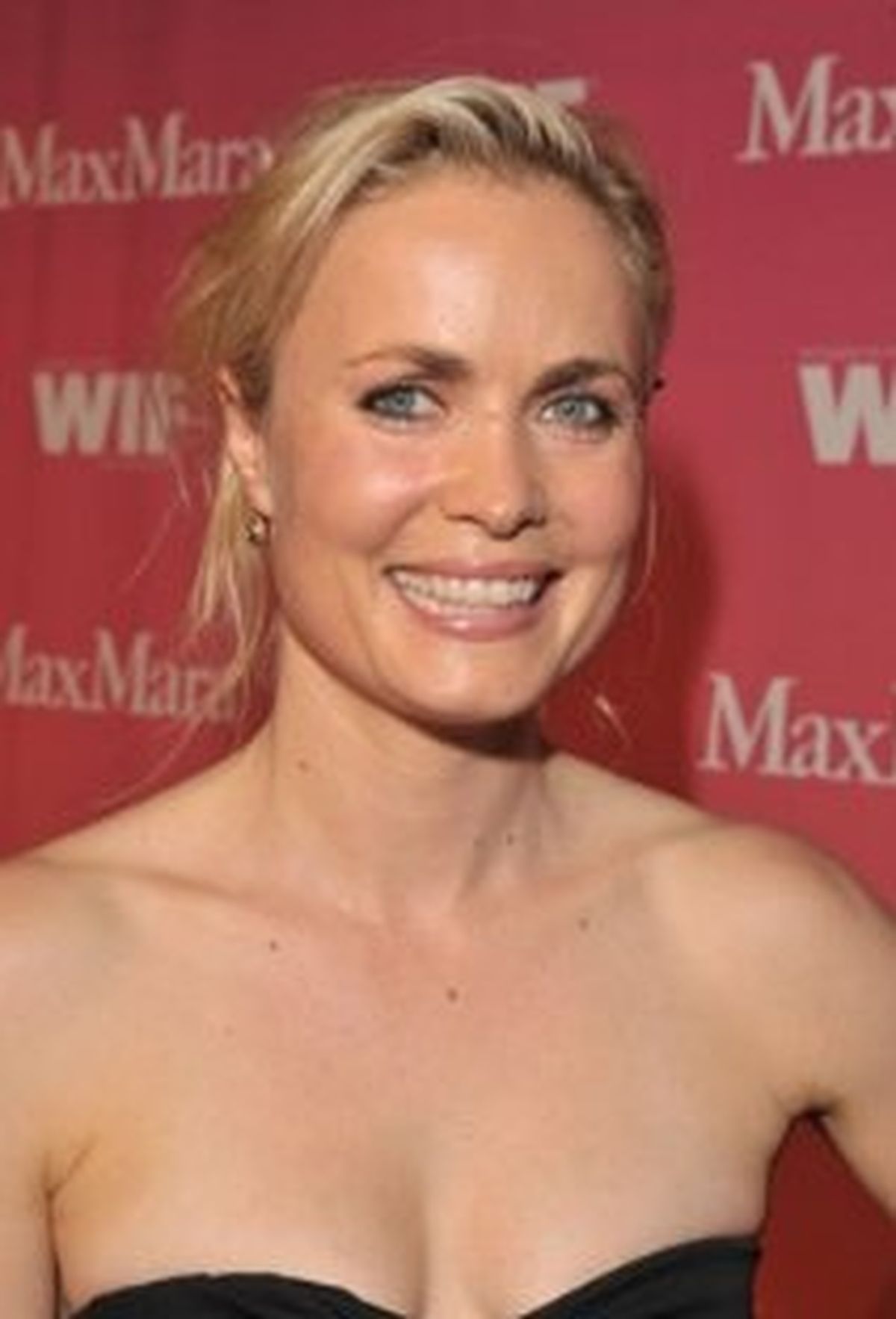Female antiheroes move into leading television roles

In ABC’s “Red Widow,” Radha Mitchell plays Marta Walraven, a soccer mom who is drawn into the swirl of organized crime after her husband is gunned down in front of their home.
During Sunday’s two-hour pilot, Marta consorts with gangsters, gets involved with a drug deal and appears to be headed down a very dark, possibly murderous, path.
At one point, an acquaintance asks her just how far she’s willing to go.
It’s a question that could be directed at ABC and the show’s lead writer, Melissa Rosenberg. Television – especially broadcast television – doesn’t typically associate its leading ladies with such shady doings. That’s guy stuff.
But Rosenberg, who once wrote for “Dexter,” clearly believes it’s time to take things to another level.
“This is a flawed female character, as all human beings are,” she told journalists during a media panel for “Red Widow,” which is based on a Dutch drama. “That’s exciting to bring to network television.
“On cable, we’ve had these male characters who are very flawed and complex – Tony Soprano, Dexter Morgan, Vic Mackey. We’ve just begun to have that on cable for women. … This is a very tricky character to sell to an audience, because women are held to a higher standard.”
Tricky, indeed. Ever since James Gandolfini’s Tony Soprano made so-called antiheroes fashionable, television has delivered an abundance of lead male characters who delve deeply into the dark side. Standout scoundrels among the current crowd include drug kingpin Walter White (Bryan Cranston) of “Breaking Bad,” serial killer Dexter Morgan (Michael C. Hall) of “Dexter,” and motorcycle gangster Jacks Teller (Charlie Hunnam), who headlines “Sons of Anarchy.” They’re all capable of the most heinous actions imaginable.
Extraordinary lead female antiheroes? You can probably count them on one hand. There was the pot-peddling mom played by Mary-Louise Parker on “Weeds,” the adulterer-addict (Edie Falco) on “Nurse Jackie,” the unscrupulous attorney (Glenn Close) on “Damages.”
Though these women are certainly flawed, and in some cases even unlikable, they aren’t usually in the same ballpark as the men when it comes to nefarious deeds.
Rebecca Maher, a romance novelist, who wrote a blog post about the discrepancy between flawed male and female characters in pop culture, says she has detected a general willingness to make allowances for male characters that behave badly, but a harsh backlash against heroines who do the same.
“Tony Soprano could get away with anything, and we’d still root for him,” she says. “But when it comes to female characters, we usually judge them more harshly. We still tend to want them to be young, feminine, one-dimensional and basically good. It’s harder to forgive their misdeeds.”
L.S. Kim, a professor in UCLA’s School of Theater, Film and Television, insists it’s all a matter of long-ingrained expectations.
“It’s hard to escape the roots and the history. For over 50-plus years, women in pop culture have primarily served in a comforting role – mothers, wives, sisters,” she says. “We hardly get female heroes, so it only stands to reason that we’d hardly get female antiheroes.”
Like the males, most of the lead female characters with rougher edges have been on cable shows that tend to draw smaller, niche audiences. Keri Russell as an icy Russian spy on FX’s “The Americans” is a recent example. But broadcast television, with a few exceptions, has generally stuck to more traditional portrayals.
However, there are signs that is changing – especially on ABC, where the women of “Desperate Housewives” were certainly no saints. The network is also home to soapy dramas “Revenge,” headlined by a ruthless protagonist (Emily VanCamp) out to avenge crimes committed against her father, and “Scandal,” about a savvy Washington, D.C., fixer (Kerry Washington) who is hip-deep in moral quicksand.
As Rosenberg says, it can be tricky trying to write a sinful character who is still able to draw upon an audience’s compassion. But the “Red Widow” producer got plenty of practice during four years as a writer on “Dexter.”
“(That experience) really helped me to find in those dark places what it is that’s universal, what it is we can all relate to,” she said. “And, as played by Radha, you really feel the humanity of this character. … You are with her. The story is about Marta protecting her family and the lengths to which she’ll go to do that, not always necessarily making the right choice.”
But, again, how far will she take her “Red Widow” character? If the show is a success, can she ever see a day when Marta reaches the horrid level of, say, a Walter White in “Breaking Bad”?
“That’s one of my favorite television shows ever,” Rosenberg said. “It is the model. I don’t know where the character could go, but she could be as bad as Walter White.”